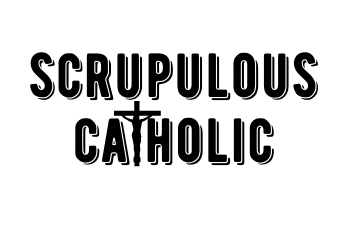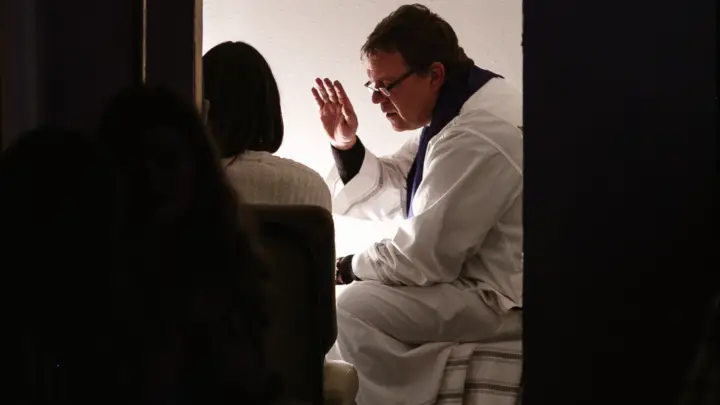If you are looking for a simple confession guide for the scrupulous, this is for you!
As someone who also struggles with scrupulosity, I know how it feels to be afraid of confession. Not because of revealing my sins to another person (Priest) but because I might not be totally forgiven. This is the major reason why scrupulous dread confession. We want a perfect confession for a perfect absolution!
Now, let’s talk about how did I manage my OCD in confession.
The lockdown during the Pandemic actually helped me with my compulsion of confessing. For almost 9 months, I could not get out and go to the nearest Church in our area.
It was this isolation that pushed me to break from confessing again and again.
I noticed that whatever advice I knew, was of no value without actually doing it. As I always say, the first step is the hardest. But once you do it even just once, the next will be easier.
Cut to the chase, you need Exposure and Response Prevention (ERP) Therapy.
This has been my secret all along.
I discussed the complete details of ERP here.
RELATED– Prayer Journal for Scrupulous that can help in tracking and overcoming compulsion.
That said, let us first clarify some doubts before, during, and after the confession.
Here are some of the issues I had before. Let’s dig deep into them.
1. Longer Examination of Conscience
With numerous sins that could come up while doing the examen, it is inevitable to feel overwhelmed. It is without a doubt tedious on the part of the scrupulous. There is a propensity that past sins that have already been confessed would resurface to divulge again.
To avoid this, I choose an examination of conscience that is easy to follow. It minimizes confusion and doubt.
Action Plan: Choose a simple examination of conscience. Here is a simple examen with tips on doing it for scrupulous. I also suggest not making a list (it will trigger your fear more!).
2. Afraid to miss a sin
This is a typical reason why the scrupulous got stressed about confession. They fear forgetting even just one sin which they think would automatically invalidate the whole Sacrament.
I remember one time I confessed, I was too nervous because I might miss one. When the priest absolved my sins, I interrupted him, telling him, I have some more to add. He just tapped me and told me that I can mention them next time.
That time I felt relieved. Somehow, lessened my anxiety.
Action Plan: Go to confession and let the sins flow. If on or after the absolution you remember a sin, just confess it next time. Remember that you are already in the state of grace thus, you can receive the Eucharist.
3. Pray the Act of Contrition perfectly
After the absolution, some priests request penitents to pray the Act of Contrition. At first, I thought this is a requirement for the complete forgiveness of sins. It was later that I found out this isn’t. This practice is optional.
Just like other prayers, this one is no excuse as far as my compulsion is concerned. In this phase, intrusive thoughts are active. I kept on repeating this prayer many times until I get right. The goal is to recite it perfectly so that the absolution of my recently confessed sins is also perfect.
Action Plan: Act of Contrition is not a requirement. If a priest did not ask you to pray, follow him. Otherwise, choose a short Act of Contrition to avoid compulsion. Here is an example of the simplest I know.
Conclusion
For recovery, the action plans I mentioned must be followed. The goal here is to expose yourself to the obsession and respond to it differently. This will drastically change you!
Have a hard time deciding whether to receive the Eucharist or not because of the possible breaking of the Eucharistic fast? Here’s a quick guide.
For more resources on scrupulosity, please check this out.
St. Dymphna, pray for us.


a perfect absolution - databaseen
[…] Confession Guide for Scrupulous – Scrupulous Catholic […]